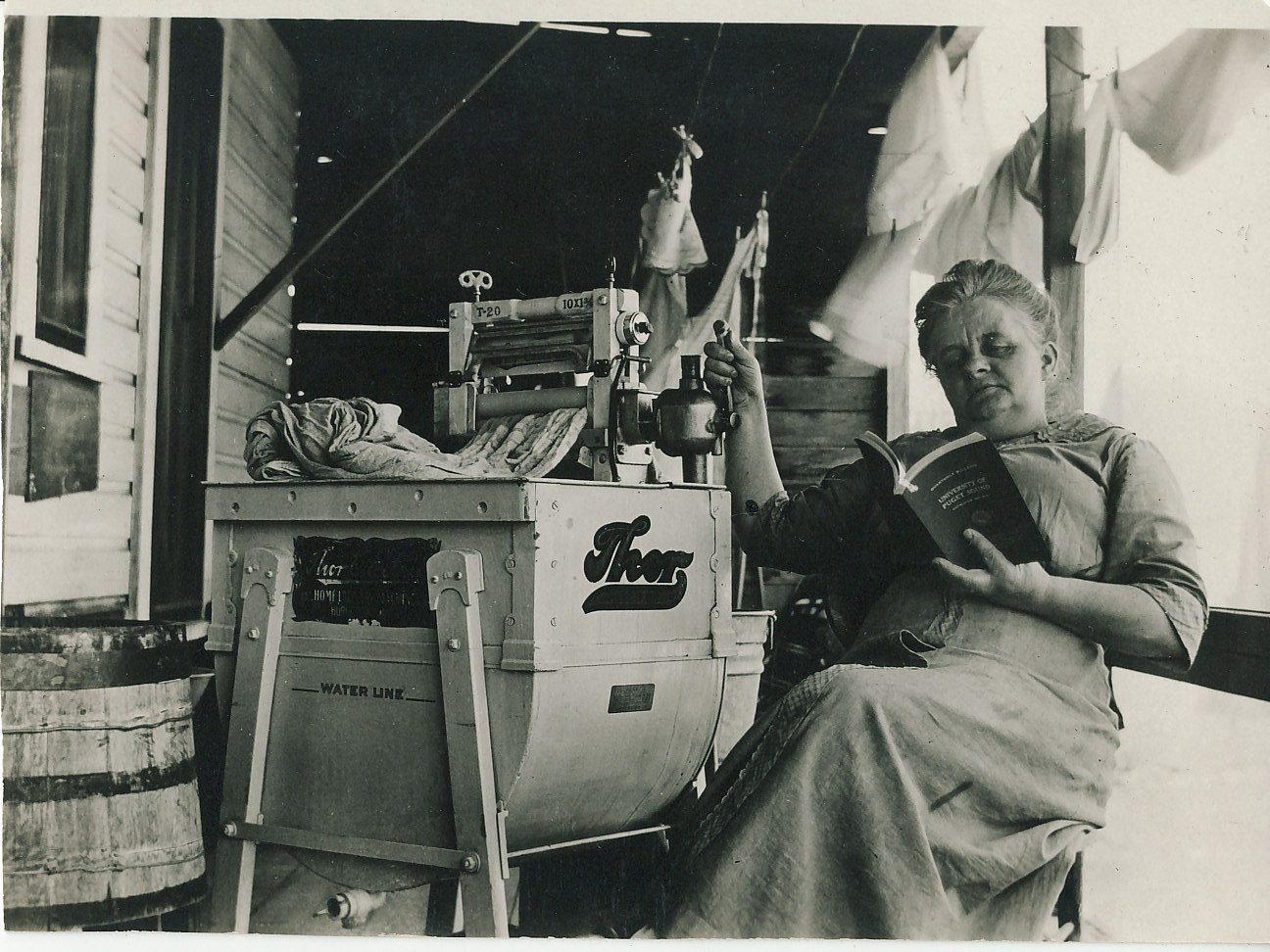“We Had This Crazy Idea That Someone Should Press A Button On Their Phone And Someone Will Come And Pick Up Their Laundry”
May 27, 2014 in Excerpts, Science/Tech, Urban Studies | Permalink
Before portable computing was the thing, New Yorkers used to make fun of Los Angeles for its post-Hippie oddness and the Dream Factory it powered. But the one-liners about California are now pointed northward, at a new kind of dreaming, even if the joke is really on the rest of us. In New York magazine, Jessica Pressler has fun with the whiz kids behind the smartphone-enabled laundry service Washio, while taking broader aim at America’s supposed best and brightest, who’ve descended on Silicon Valley to get rich quick organizing the minutiae of our lives–by making problems disappear, if only briefly. An excerpt about the company that delivers free cookies with your clean clothes:
“Remember the scrub board? One imagines people were thrilled when that came along and they could stop beating garments on rocks, but then someone went ahead and invented the washing machine, and everyone had to have that, followed by the electric washing machine, and then the services came along where, if you had enough money, you could pay someone to wash your clothes for you, and eventually even this started to seem like a burden—all that picking up and dropping off—and the places offering delivery, well, you had to call them, and sometimes they had accents, and are we not living in the modern world? ‘We had this crazy idea,’ says [Jordan] Metzner, ‘that someone should press a button on their phone and someone will come and pick up their laundry.’
So Washio made it thus. For a while, this was pleasing. But in the hubs and coastal cities of Los Angeles and Washington, D.C., and San Francisco—especially San Francisco—new innovations are dying from the day they are born, and laundry delivered with a fresh-baked cookie is no longer quite enough. There’s a term for this. It’s called the hedonic treadmill.
Fortunately, the employees of Washio are on their toes. ‘What if we did bananas?’ Nadler suggested. Everyone laughed.
Metzner held up a small brown bag featuring a silhouette of a flower and a clean lowercase font. ‘I’ve been talking to the CEO of NatureBox,’ he said. ‘It’s like a Birchbox for healthy treats. Every month they send you nuts and …’
“Banana chips?” said Brittany Barrett, whose job as Washio’s community manager includes cookie selection. Everyone laughed, again.
Metzner looked down at the bag. ‘Flax crostini,’ he said. ‘I think it’s a much better value proposition than a cookie.’ He looked at the bag again. ‘What is a flax crostini?’
We are living in a time of Great Change, and also a time of Not-So-Great Change. The tidal wave of innovation that has swept out from Silicon Valley, transforming the way we communicate, read, shop, and travel, has carried along with it an epic shit-ton of digital flotsam. Looking around at the newly minted billionaires behind the enjoyable but wholly unnecessary Facebook and WhatsApp, Uber and Nest, the brightest minds of a generation, the high test-scorers and mathematically inclined, have taken the knowledge acquired at our most august institutions and applied themselves to solving increasingly minor First World problems. The marketplace of ideas has become one long late-night infomercial. Want a blazer embedded with GPS technology? A Bluetooth-controlled necklace? A hair dryer big enough for your entire body? They can be yours! In the rush to disrupt everything we have ever known, not even the humble crostini has been spared.”
Subscribe to my free Substack newsletter, "Books I Read This Month." It's published on the final day of each month. Some new titles, some older, some rare.
Categories
About
Afflictor.com is the website of Darren D’Addario. Except where otherwise noted, all writing is his copyrighted material. ©2009-18.

